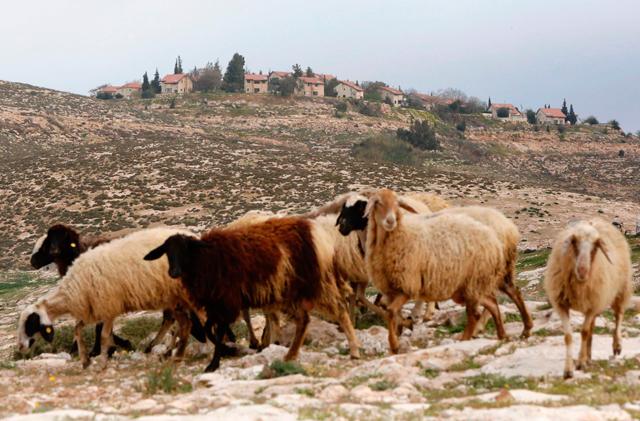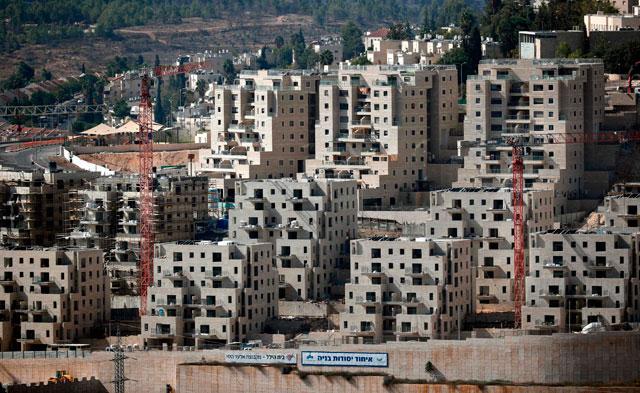You are here
Sharp rise in Israeli settlement projects in 2016
By AFP - Mar 22,2017 - Last updated at Mar 22,2017

A photo taken from the Palestinian village of Al Rahwa shows the Israeli settlement units of Teneh Omarim (top) in the Israeli occupied West Bank on Wednesday (AFP photo)
OCCUPIED JERUSALEM — Construction on new Israeli settlement units in the occupied West Bank rose by 40 per cent in 2016 compared with the previous year, official figures showed on Wednesday.
Ground was broken on 2,630 settler units last year compared with 1,884 in 2015, figures from Israel’s Central Bureau of Statistics showed.
Anti-settlement NGO Peace Now called it “the second highest number of construction starts in the past 15 years”.
The highest number during that time was 2,874 in 2013.
Israeli settlement unit building is seen as illegal under international law and a major obstacle to peace as they are built on land the Palestinians see as part of their future state.
Much of the international community has raised increasing alarm over settlement units expansion, saying it is gradually eating away at prospects for a two-state solution to the Israeli-Palestinian conflict.
“On average, since 2001, 1,790 settler units begin to be constructed in West Bank settlements each year,” Peace Now said.
Citing Israeli official data, it said 14,017 units were started since Prime Minister Benjamin Netanyahu returned to office in 2009, though settlement construction has continued under successive Israeli leaders.
The figures exclude East Jerusalem, occupied by Israel in 1967 and later annexed in a move never recognised by the international community.
Some 200,000 Israeli settlers live in east Jerusalem, in addition to about 400,000 in the West Bank.
Around three million Palestinians live in the West Bank and East Jerusalem.
“The sharp increase in settlement construction sends a clear message to the Palestinians and to the international community that Israel is not interested in a two-state solution,” Peace Now said.
Netanyahu has been in discussions with US President Donald Trump’s administration on how to move forward with settlement building.
When meeting Netanyahu at the White House in February, Trump called for Israel to “hold back on settlements for a little bit”.
At that meeting, Trump also broke with decades of US policy by saying he was not bound to a two-state solution to the conflict and would be open to one state if it meant peace.
But one of his top advisers, Jason Greenblatt, visited Israel and the Palestinian territories last week, holding a range of meetings on both sides, including with Palestinian President Mahmoud Abbas and Netanyahu.
Related Articles
OCCUPIED JERUSALEM — Prime Minister Benjamin Netanyahu vowed on Thursday to move ahead on a plan to create Israel's first new settler units
OCCUPIED JERUSALEM — Israel on Sunday advanced plans for 780 new settlements in the occupied West Bank, settlement watchdog Peace Now said,
OCCUPIED JERUSALEM — Israeli authorities advanced plans on Tuesday for 1,292 settler units in a new push by Prime Minister Benjamin Netanyah

















